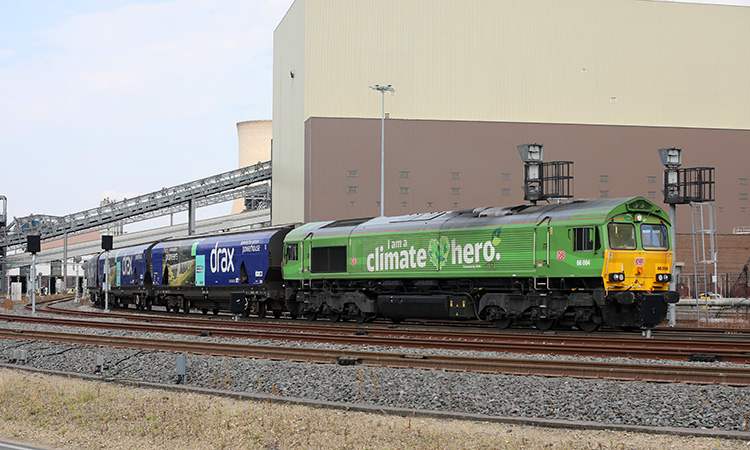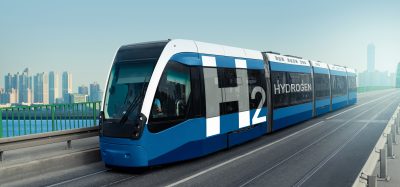DB Cargo UK transitions to renewable fuel for Drax Group Transport
Posted: 6 August 2024 | Global Railway Review | No comments yet
DB Cargo UK has switched all trains servicing Drax Group to Hydro-treated Vegetable Oil, significantly reducing carbon emissions and supporting the UK’s renewable energy goals.


Credit: DB Cargo UK
DB Cargo UK has announced a significant shift in its operations, stating that all trains servicing Drax Group, which operates the UK’s largest renewable energy plant near Selby, will now be powered entirely by Hydro-treated Vegetable Oil (HVO). This transition to HVO fuel reflects both companies’ commitment to reducing carbon emissions.
Drax Group has made the switch to 100% renewable fuel as part of its ongoing efforts to lower its carbon footprint. DB Cargo UK currently transports approximately 4.5 million tonnes of biomass pellets to Drax Power Station each year, utilising around 60 trains weekly, which translates to about 3,000 train journeys annually.
The transition from traditional red diesel to HVO is expected to result in a substantial reduction in carbon emissions from rail freight, estimated at up to 90%, which equates to saving over 12,000 tonnes of carbon annually. This reduction is comparable to removing the emissions produced by 30 million miles of car travel.
HVO fuel is promoted as one of the cleanest available, produced synthetically from vegetable oils or animal fats through hydro-treatment, thereby significantly decreasing harmful emissions of carbon dioxide (CO2) and nitrogen oxide (NOx). Importantly, HVO is derived entirely from waste products, with no virgin materials involved in its production.
Roger Neary, Chief Sales Officer at DB Cargo UK, said: “The government had set the rail industry a stretching target to achieve net zero carbon emissions by 2050 and remove all diesel-only traction by 2040, so the use of HVO in our trains will go a long way to helping us meet that challenge.
“Until a firm commitment is made to the electrification of the UK network, HVO is the only credible solution to rail freight decarbonisation. More services could be operated with HVO if the right policies and incentives were in place to enable more customers to make the switch.”
The role of rail freight is pivotal in the supply chain for Drax, transporting large volumes of biomass pellets necessary for the plant, which contributes approximately 8% of the UK’s renewable power.
Bruce Heppenstall, Plant Director at Drax Power Station, acknowledged the sustainability of rail transport. He noted that rail freight is inherently more eco-friendly than road transport, effectively removing about 192,000 heavy goods vehicles (HGVs) from the UK’s road network each year.
Heppenstall said: “We are proud that DB Cargo’s HVO powered trains service Drax Power Station. We are committed to decarbonising our supply chains and, through deploying carbon removals technology, bioenergy with carbon capture and storage, we aim to become a carbon negative business.
“Drax Power Station uses high volumes of biomass to keep the lights on for millions of homes across the UK. Rail freight is a cleaner and greener option for transporting this material, and our partnership with DB Cargo prevents thousands of additional journeys by HGVs across the UK’s road network.”
This shift to HVO is part of a broader trend in the rail industry towards sustainable practices and fuels, aiming to meet the growing demand for environmentally friendly solutions in transportation.







